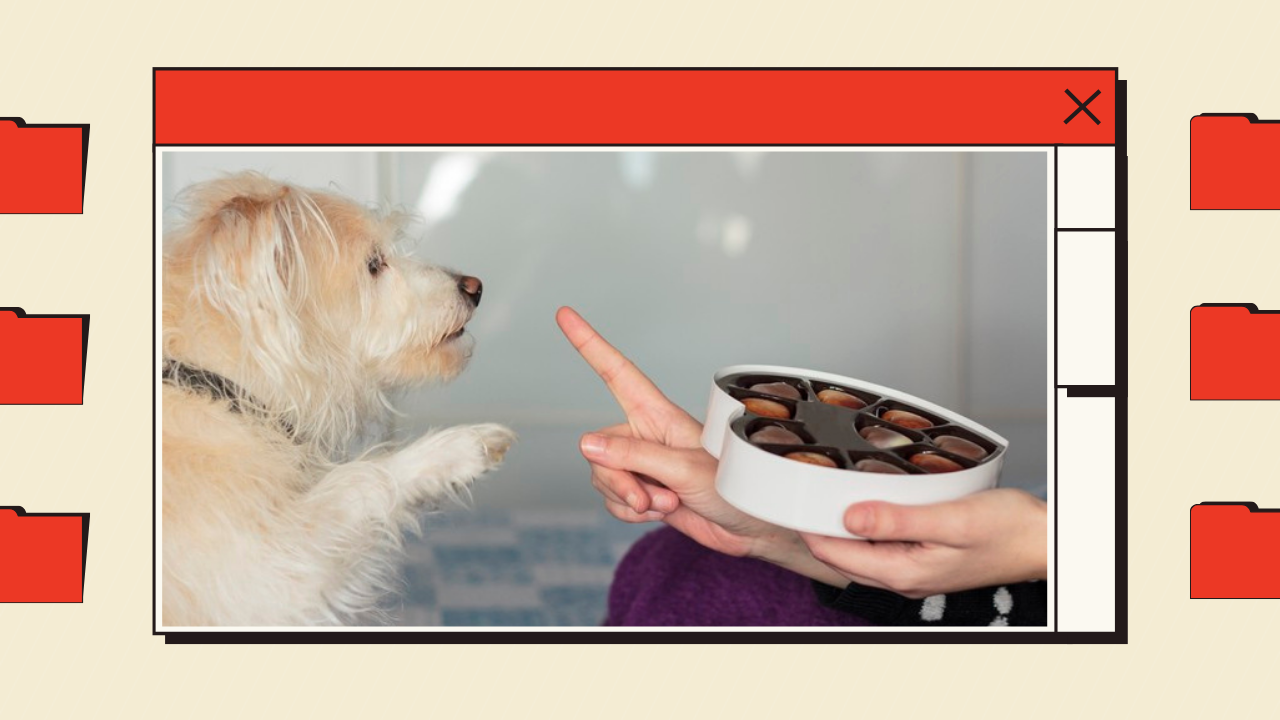If your dog has high liver enzymes, you already know how important it is to watch what they eat. Feeding your furry friend the wrong foods can make their condition worse and slow down their recovery.
You want to help your dog feel better, but it’s easy to get confused about what’s safe and what’s not. You’ll discover the foods you should avoid giving your dog with high liver enzymes, so you can protect their health and support their healing.
Keep reading to learn how to make the best choices for your loyal companion.
Effects Of High Liver Enzymes
High liver enzymes in dogs signal that the liver is under stress or damaged. This condition can affect your dog’s overall health and well-being in ways you might not immediately recognize. Understanding the effects of elevated liver enzymes helps you take timely action to protect your furry friend.
Signs Of Liver Stress In Dogs
Recognizing liver stress early can make a big difference in managing your dog’s health. Watch out for symptoms like:
- Lethargy or unusual tiredness
- Loss of appetite or sudden weight loss
- Yellowing of gums, eyes, or skin (jaundice)
- Excessive thirst or urination
- Vomiting or diarrhea
- Swelling in the abdomen
These signs often appear subtle at first. Have you noticed any changes in your dog’s behavior or appearance that seem off? Early observation is key to catching liver issues before they worsen.
Impact On Dog’s Health
The liver plays a crucial role in filtering toxins and aiding digestion. When liver enzymes are high, it means the liver cells are damaged or inflamed, which impairs these functions.
Untreated liver stress can lead to more serious complications such as:
- Reduced ability to metabolize medications
- Build-up of toxins in the bloodstream
- Chronic liver disease or failure
- Compromised immune system
Think about how your dog’s energy and mood have changed. Could these shifts be linked to liver health? Taking prompt steps to support the liver can improve your dog’s quality of life significantly.
Foods To Avoid With Liver Issues
Dogs with high liver enzymes need special care in their diet. Certain foods can worsen liver problems and cause more damage. Avoiding harmful foods helps your dog stay healthier and feel better. Knowing which foods to skip is important for managing liver issues effectively.
High-fat Foods
Fatty foods make the liver work harder. High-fat meals can cause inflammation and stress the liver. Avoid giving your dog fried foods, fatty cuts of meat, and creamy sauces. These foods slow down liver recovery and may lead to other health issues.
Processed And Junk Foods
Processed foods contain many artificial ingredients and preservatives. Junk food often has high salt and sugar, which harm the liver. Avoid snacks like chips, cookies, and processed meats. These foods can upset your dog’s digestion and increase liver strain.
Toxic Foods For Dogs
Some foods are toxic and dangerous for dogs with liver problems. Avoid onions, garlic, chocolate, grapes, and raisins. These foods can cause liver failure or worsen existing liver damage. Keep these items far from your dog’s reach at all times.
Foods High In Copper
Copper builds up in the liver and causes damage in some dogs. Avoid foods rich in copper, such as liver, shellfish, and nuts. Too much copper can increase liver enzyme levels and worsen liver disease. Consult your vet for safe food choices low in copper.
Harmful Ingredients In Dog Food
Harmful ingredients in dog food can worsen liver problems. Dogs with high liver enzymes need gentle, clean nutrition. Certain substances can stress the liver more. Avoiding these helps protect your dog’s health.
Artificial Additives And Preservatives
Many dog foods contain artificial colors, flavors, and preservatives. These chemicals can irritate the liver and cause inflammation. Common additives include BHA, BHT, and ethoxyquin. These substances may harm liver cells and slow healing. Always choose foods without artificial additives to keep the liver safe.
Excessive Protein Sources
High protein levels strain a dog’s liver, especially if damaged. Too much protein forces the liver to work harder. Protein from low-quality sources adds toxins to the body. Feeding moderate, high-quality proteins supports liver function better. Avoid foods with excessive or poor protein content.
High Salt Content
Salt helps preserve taste but can harm dogs with liver issues. Excess salt leads to dehydration and worsens liver stress. It may cause fluid buildup in the abdomen or legs. Look for low-sodium dog foods to reduce liver workload. Keep salt levels as low as possible for your dog’s health.

Credit: www.amazon.ca
Safe And Beneficial Foods
Choosing the right foods helps support your dog’s liver health. Safe and beneficial foods reduce strain on the liver. These foods provide essential nutrients without harmful fats or toxins. Feeding a balanced diet aids recovery and maintains overall health.
Low-fat Protein Options
Protein is vital for repair and energy. Low-fat proteins reduce liver stress. Good choices include:
- Skinless chicken breast
- Turkey
- White fish like cod or tilapia
- Egg whites
- Lean ground beef in small amounts
Avoid fatty cuts and processed meats. Cook proteins thoroughly to aid digestion.
Vegetables And Fruits To Include
Vegetables and fruits add fiber and antioxidants. They help flush toxins and support liver cells. Safe options are:
- Carrots
- Green beans
- Sweet potatoes
- Blueberries
- Apples (without seeds)
- Pumpkin
Serve them cooked or mashed for easy digestion. Avoid onions, garlic, grapes, and raisins as they harm dogs.
Hydration And Liver Health
Water supports liver function and toxin removal. Keep fresh water available at all times. Wet dog food can increase fluid intake. Broths made without salt or seasoning also help. Proper hydration aids healing and keeps your dog comfortable.
Diet Management Tips
Managing your dog’s diet when they have high liver enzymes requires careful attention to what and how much they eat. The right diet can support liver health and prevent further damage. Small changes in feeding habits can make a big difference in your pet’s recovery and overall well-being.
Portion Control
Overfeeding can put extra strain on your dog’s liver. Measure your dog’s food precisely using a kitchen scale or measuring cup. Avoid guessing portions, even if your dog begs for more—it’s important to stick to the recommended amount.
Try dividing their daily food into smaller, controlled portions. This helps prevent overeating and keeps their liver from working too hard to process excess nutrients. Have you ever noticed how your dog’s energy changes with different portion sizes?
Meal Frequency
Feeding smaller meals more often can ease the burden on your dog’s liver. Instead of two large meals, aim for three to four smaller ones throughout the day. This approach helps maintain steady blood sugar levels and reduces the liver’s workload.
Consistency matters too. Feed your dog at the same times each day to support their metabolism. If you skip or delay meals, it can cause unnecessary stress on their liver function.
Monitoring And Adjusting Diet
Keep a close eye on how your dog reacts to their diet. Track any changes in their appetite, energy, or stool quality. These signs can tell you if the current diet is helping or if adjustments are needed.
Work with your vet to update the diet plan based on your dog’s progress. Sometimes, slight tweaks in protein or fat levels can improve liver enzyme levels. Are you ready to make diet changes that could boost your dog’s liver health?

Credit: wefeedraw.com
Consulting A Veterinarian
When your dog has high liver enzymes, deciding what to feed them can feel overwhelming. Consulting a veterinarian is essential to navigate this challenge safely. They provide tailored advice that fits your dog’s unique health needs, helping you avoid foods that could worsen their condition.
Importance Of Professional Guidance
Veterinarians understand how liver issues affect your dog’s body and metabolism. They can pinpoint which foods might cause harm and suggest safe alternatives. This guidance prevents accidental feeding of harmful ingredients like certain fats, additives, or toxins.
Imagine trying to treat your dog’s liver problem on your own—you might unknowingly add to their distress. A vet’s knowledge helps you avoid that risk and supports your dog’s recovery. They can also recommend supplements or medications that improve liver function.
When To Seek Medical Advice
If you notice signs like vomiting, loss of appetite, or jaundice, contact your vet immediately. Even subtle changes in behavior or energy levels warrant a professional check-up. Early intervention can make a significant difference in managing liver health.
Don’t wait until symptoms become severe. Regular vet visits help monitor liver enzyme levels and adjust your dog’s diet as needed. How confident are you in your current knowledge about your dog’s liver-friendly foods? A quick call to your vet can provide clarity and peace of mind.

Credit: www.amazon.ca
Frequently Asked Questions
What Foods Worsen High Liver Enzymes In Dogs?
Foods high in fat, salt, and artificial additives can worsen liver enzymes. Avoid processed meats, dairy, and sugary snacks. These foods strain your dog’s liver and delay recovery. Always consult your vet for a suitable diet plan.
Can Dogs With Liver Issues Eat Bones?
No, bones can be harmful to dogs with liver problems. They risk choking, digestive blockage, and added liver stress. Soft, easy-to-digest foods are safer for dogs with high liver enzymes.
Are Human Foods Safe For Dogs With Liver Enzyme Issues?
Many human foods are unsafe for dogs with liver problems. Avoid onions, garlic, chocolate, and alcohol. These foods are toxic and can worsen liver damage. Always check with your vet before feeding human food.
Why Avoid Fatty Foods For Dogs With Liver Enzyme Problems?
Fatty foods increase liver workload and worsen enzyme levels. They can cause inflammation and slow down liver healing. Low-fat, balanced diets support liver health and improve your dog’s recovery.
Conclusion
Feeding a dog with high liver enzymes requires care. Avoid harmful foods like fatty meats, onions, and garlic. Focus on lean proteins and healthy grains. Always consult your vet for a tailored diet plan. Regular vet check-ups are crucial. Watch for any unusual symptoms in your dog.
Remember, a healthy diet supports liver health. Your dog’s well-being depends on what they eat. Be mindful and informed to ensure their health. Keep learning about safe food choices for your pet. Your love and attention make all the difference.

